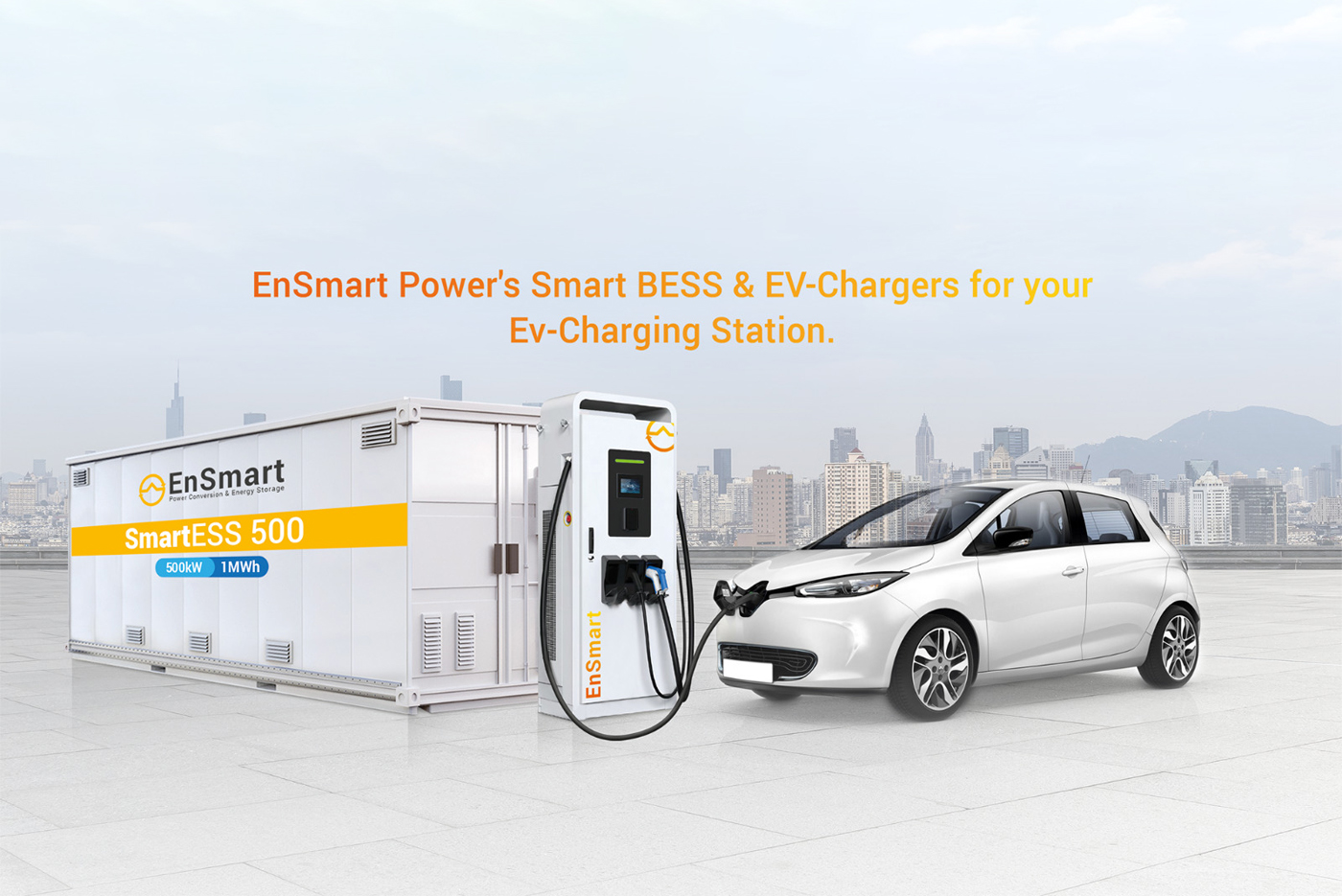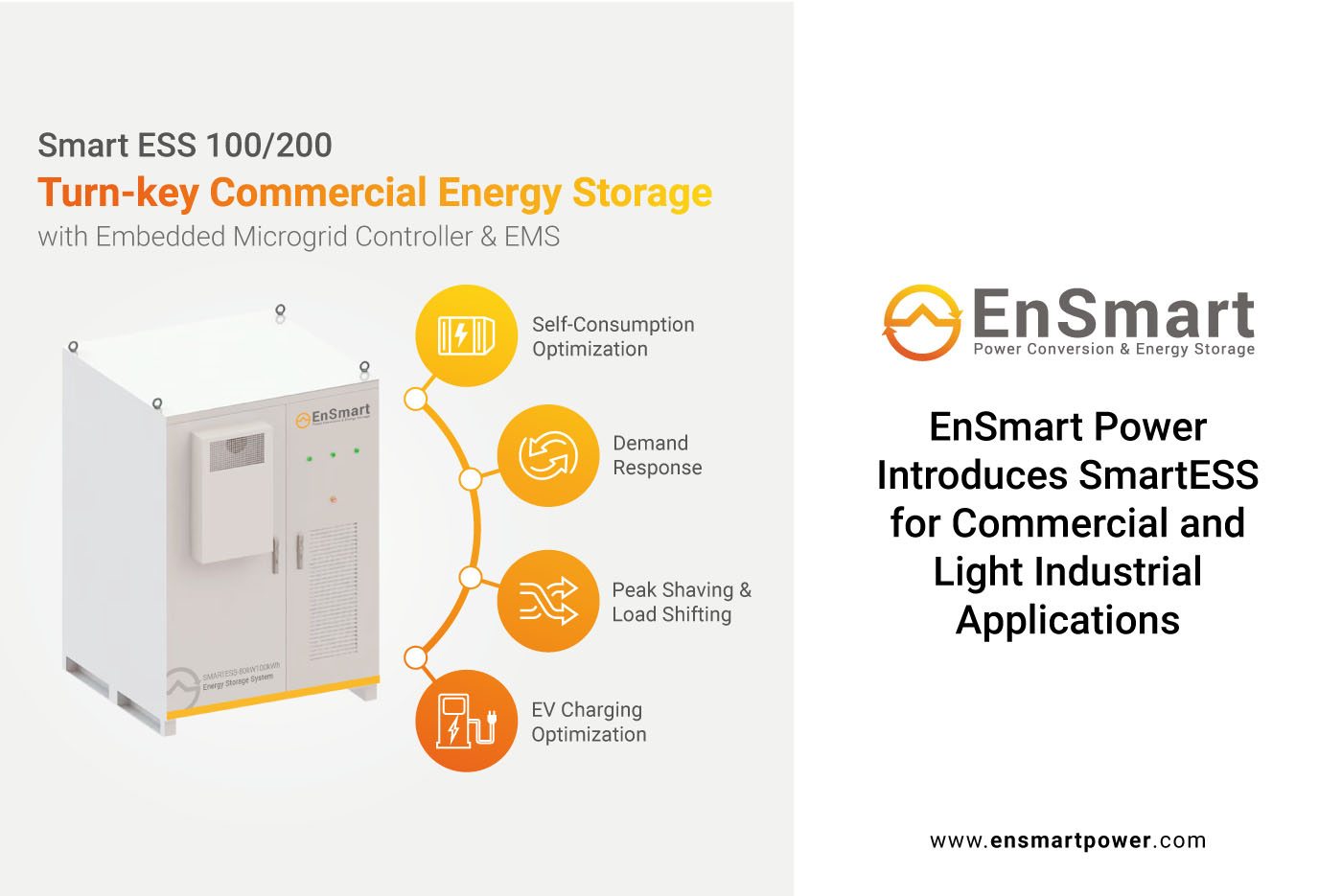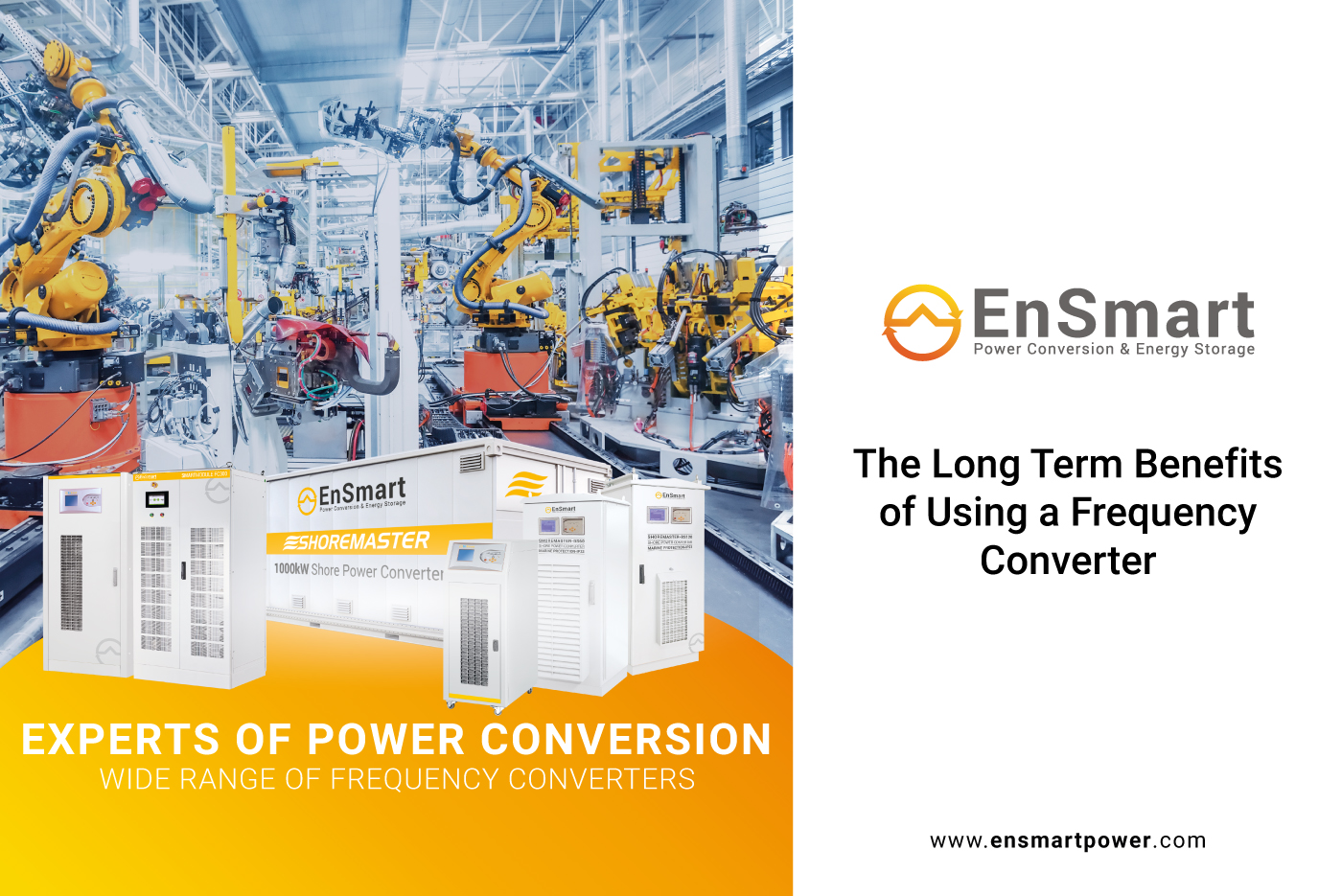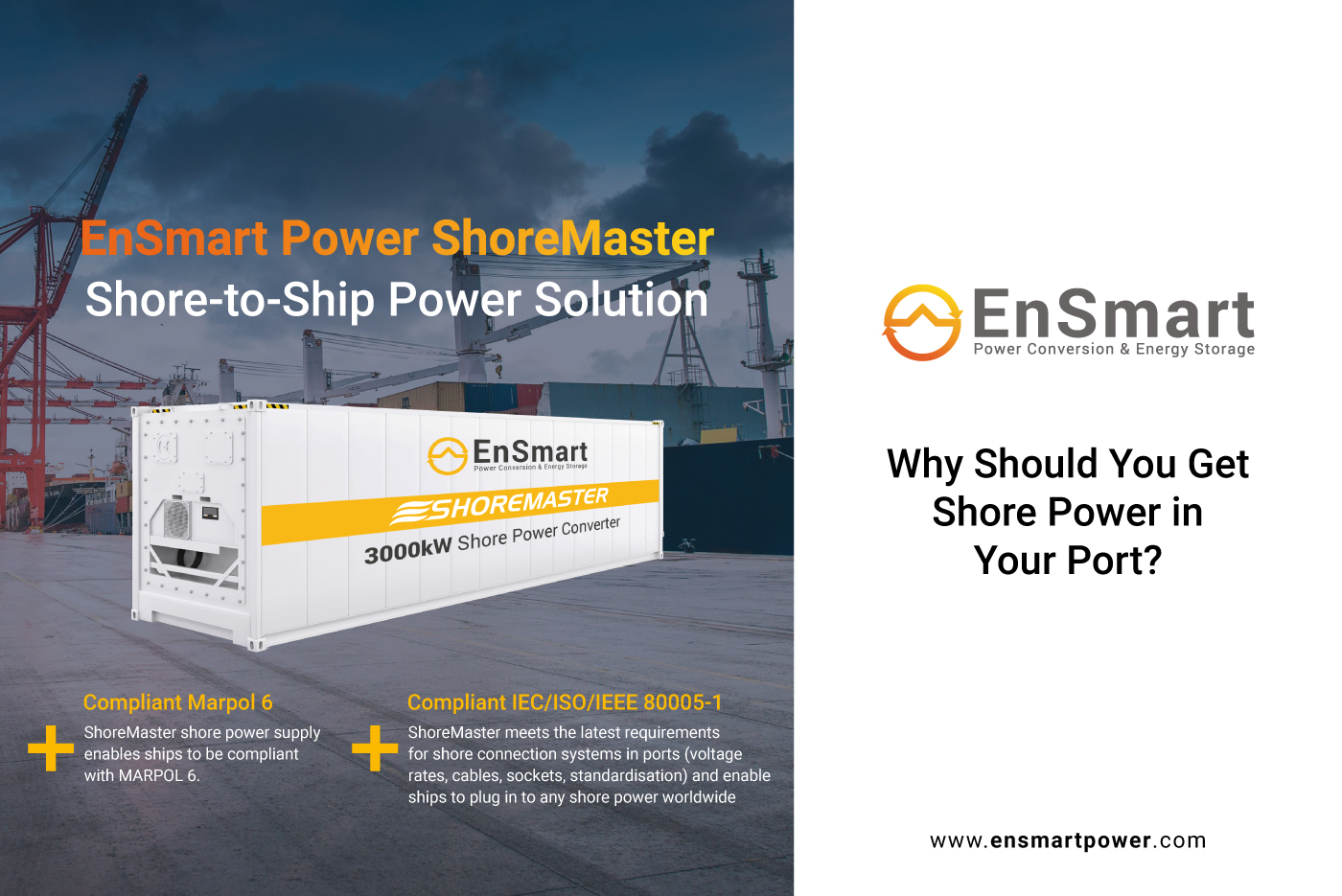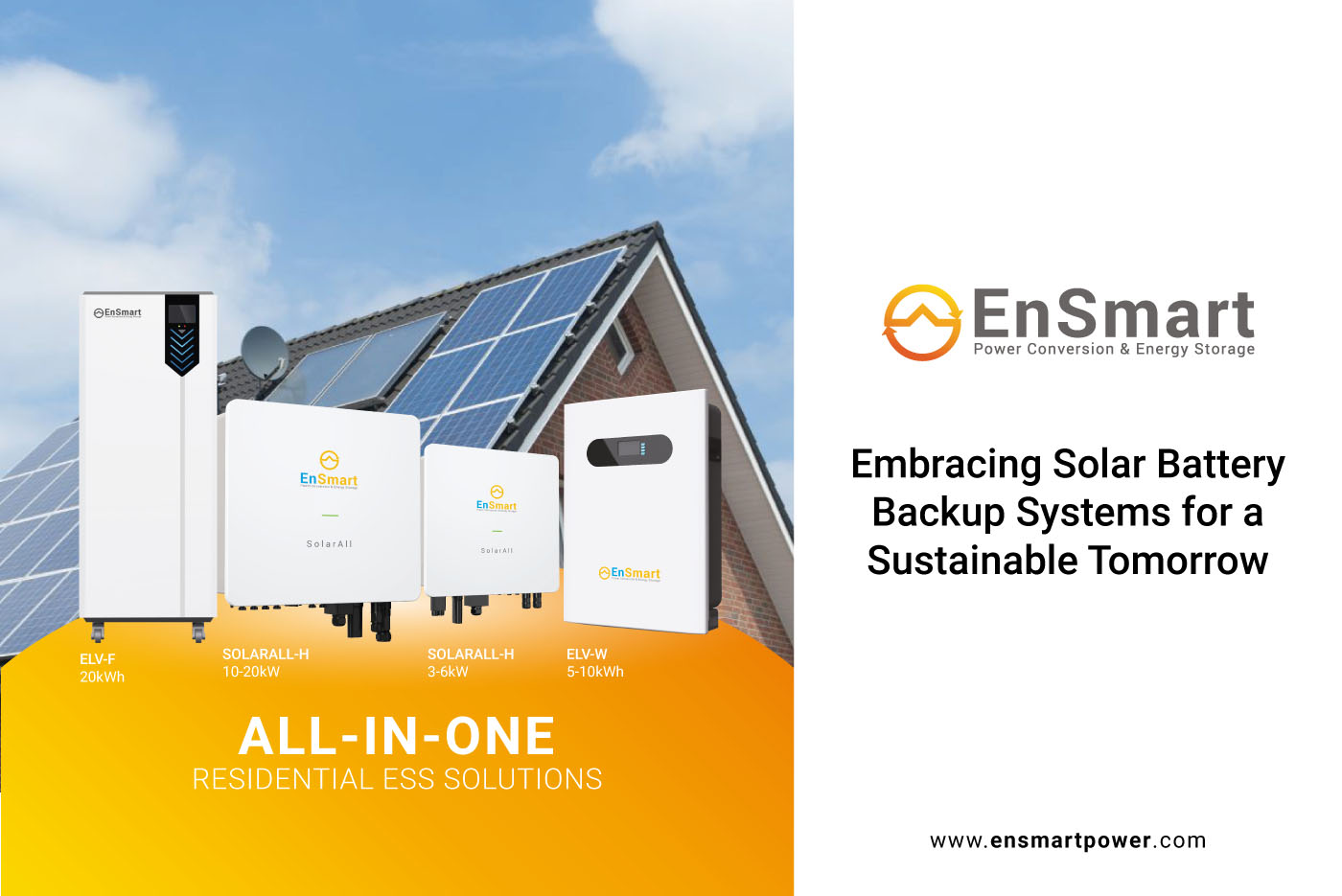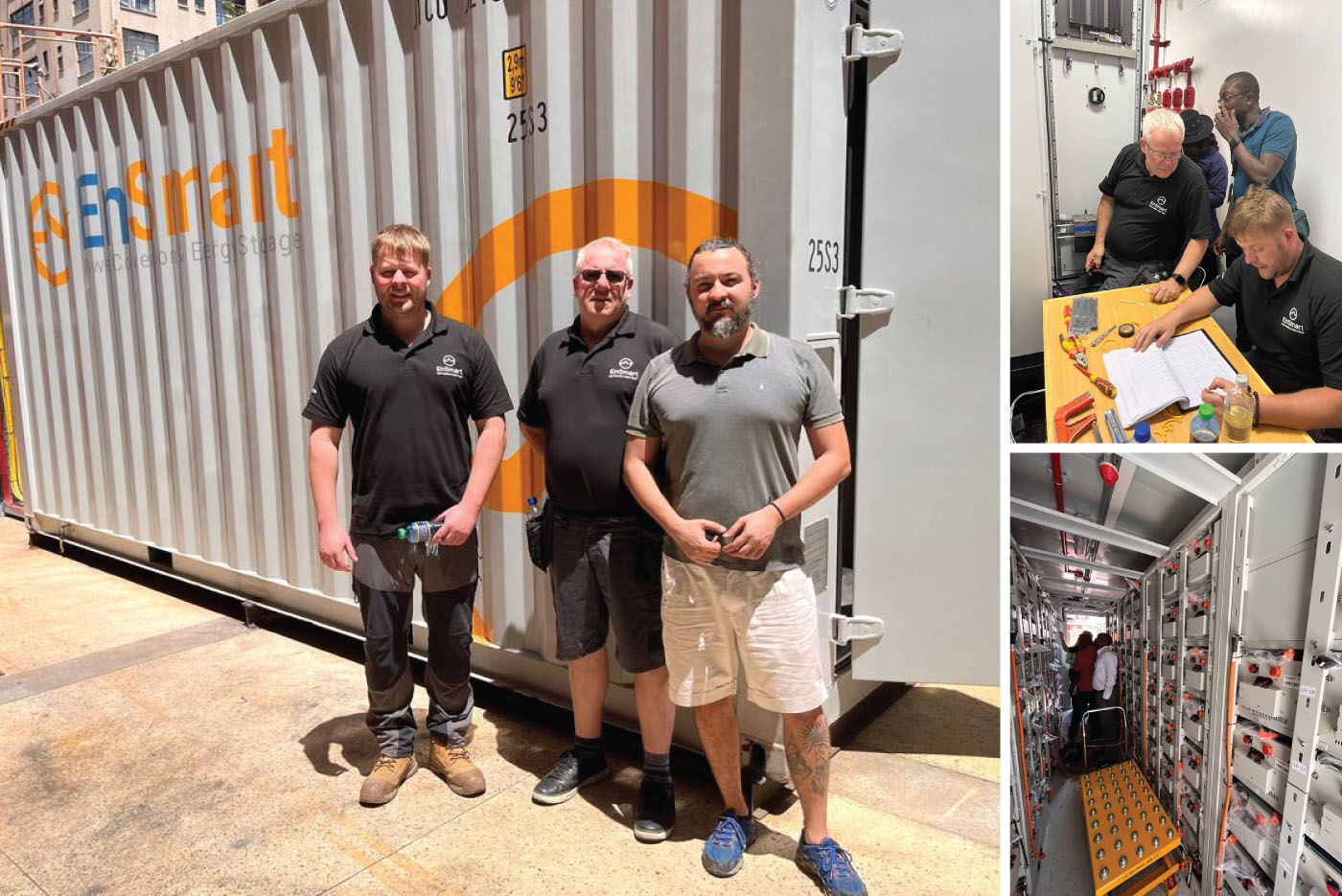BATTERY ENERGY STORAGE FOR EV CHARGING
You may also be interested in..
EnSmart Power Introduces SmartESS for Commercial and Light Industrial Applications
EnSmart Power proudly introduces their latest C&I Energy Storage System, the SmartESS. The SmartESS is a turnkey solution with a fully integrated, pre-engineered package system that reduces installation time and ideally sized for commercial and light industrial projects.
The Long Term Benefits of Using a Frequency Converter
The aviation industry, the military, and other major industries rely on frequency converters for their dependable frequency switching capabilities. These devices make it easy to switch between 50hz, 60hz, and 400hz. But beyond the immediate benefits, frequency converters offer significant long-term advantages that can empower your facility's growth and success.
Why Ports Should Get Shore Power Supply? What is Shore Power?
Shore power, also known as cold ironing or alternative marine power, is the process of supplying electrical power from the shore to a ship while it is docked, allowing the ship's auxiliary engines to be turned off and the burning of diesel fuel to stop.
What is Peak Shaving and How Does it Work?
Peak shaving, also known as load shedding or load shaving is a strategy used for reducing electricity consumption during peak demand periods.
Why You Need a Shore Power Converter in a Yacht?
Shore Power Converters are becoming an increasingly important component of the onboard inventory as more and more marinas now forbid the use of generators.
Embracing Solar Battery Backup Systems for a Sustainable Tomorrow
As we live in a world today where the sun's rays’ energy can be harvested to power the human’s lives; hope for the future is at its brightest ever.
EnSmart ESS Completed Energy Storage System Installation Successfully in Kenya
EnSmart Energy Storage Systems is proud to share the successful commissioning of our latest EnergyStorage system in Kenya!
